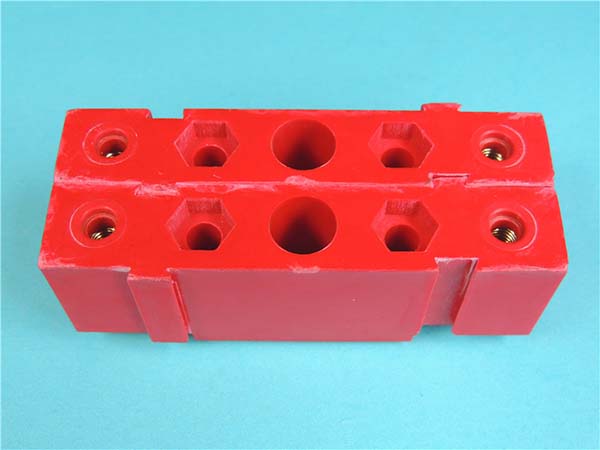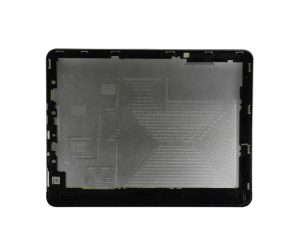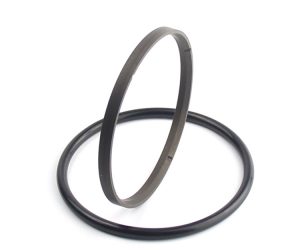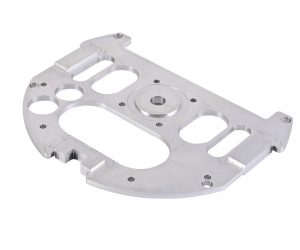1. Introduction: The Critical Role of Precision in CNC Parts Manufacturing
In today’s high - tech industries, precision is non - negotiable. CNC (Computer Numerical Control) parts suppliers must deliver components with micron - level accuracy to meet demands in aerospace, medical devices, and automotive sectors. This article explores the key factors defining top - tier suppliers, backed by technical benchmarks and real - world case studies.
The aerospace industry, for example, demands components with an extremely high level of precision. Jet engine parts, such as turbine blades, need to be manufactured with tolerances in the micron range. A slight deviation in the shape or dimensions of these blades can lead to inefficiencies in engine performance, reduced fuel efficiency, and even safety risks. In the medical device field, implants like hip replacements and spinal screws must be made with utmost precision. Imprecise manufacturing can cause issues such as poor fit in the human body, leading to discomfort for patients, or even the failure of the implant. Similarly, in the automotive industry, precision - made engine components are crucial for optimal vehicle performance, fuel economy, and reliability.
As industries continue to advance, the demand for even higher precision in CNC parts is on the rise. Suppliers that can consistently meet these stringent requirements are the ones that will succeed in the highly competitive global market. In the following sections, Yigu Technology will delve into the specific factors that set apart the ultimate CNC parts suppliers, from their equipment and technology to their quality control processes and customer service.
2. Core Competencies of Leading CNC Parts Suppliers
2.1 Advanced Manufacturing Technologies
Advanced manufacturing technologies are the cornerstone of a leading CNC parts supplier's ability to produce high - precision components.
5 - Axis Machining
One of the most significant advancements is 5 - axis machining. This technology allows for the simultaneous movement of five axes (usually three linear axes - X, Y, Z and two rotational axes - A, C or B, C), enabling the creation of highly complex geometries with remarkable precision. Suppliers like AS Precision are at the forefront of this technology. They have demonstrated the ability to achieve tolerances as tight as ±0.001mm. In the aerospace industry, this level of precision is critical. For example, when manufacturing turbine blades, the complex curvature and precise dimensions are essential for the efficient operation of jet engines. A 5 - axis machining process can produce these blades in a single setup, reducing errors associated with multiple setups and ensuring that the final product meets the exacting standards of the aerospace industry. This not only improves the quality of the components but also increases production efficiency, as fewer operations are required.
Swiss - Type Machining
Swiss - type machining is another advanced technology that is highly valued in the production of small, precision parts. Jiou Tian Jing Gung specializes in this area, particularly for long, slender components. In the medical implant industry, the demand for components with extremely high concentricity is crucial. Swiss - type machining enables the production of parts with concentricity less than 5μm. For instance, when manufacturing components for medical implants such as spinal rods or small - diameter screws used in orthopedic surgeries, the high concentricity ensures a perfect fit within the human body, reducing the risk of complications and improving the overall success of the implant procedure. The ability to maintain such tight tolerances in the production of long, slender parts sets apart suppliers who are experts in Swiss - type machining.
2.2 Material Expertise
Yigu Technology A leading CNC parts supplier must have in - depth material expertise. Different industries have diverse requirements for materials, and a supplier needs to be able to work with a wide range of them to meet customer demands.
| Material | Application | Supplier Example |
| Titane Alloy | Aerospace brackets | Precision Aerospace Components |
| Acier inoxydable 316L | Medical screws | MedTech Solutions |
| PEEK | High - temperature components | Yigu Technology |
Titanium Alloy
Titane alloy is a popular choice in the aerospace industry due to its high strength - to - weight ratio and excellent corrosion resistance. Precision Aerospace Components has mastered the art of working with titanium alloy to produce aerospace brackets. These brackets need to be lightweight yet strong enough to withstand the extreme forces experienced during flight. Titanium alloy's properties make it ideal for this application, and the supplier's expertise ensures that the brackets are manufactured to the highest standards of precision. Machining titanium alloy is challenging because of its low thermal conductivity and high chemical reactivity. However, with the right tools, techniques, and knowledge, suppliers can overcome these challenges and produce components that meet the strict requirements of the aerospace industry.
Stainless Steel 316L
Acier inoxydable 316L is a biocompatible material, making it a top choice for medical applications such as screws used in orthopedic and dental procedures. MedTech Solutions specializes in manufacturing medical screws from 316L stainless steel. The material's corrosion resistance is crucial in the human body, where it is constantly exposed to bodily fluids. The supplier's understanding of the material's properties allows them to produce screws with the right thread pitch, head design, and overall dimensions to ensure proper functionality and ease of implantation. They also ensure that the surface finish of the screws is smooth to prevent tissue irritation and promote better integration with the surrounding bone tissue.
PEEK
PEEK (Polyether - ether - ketone) is a high - performance thermoplastic with excellent mechanical properties, chemical resistance, and high - temperature stability. Yigu Technology uses PEEK to manufacture high - temperature components. In applications such as automotive engine parts or components in industrial equipment that operate in high - temperature environments, PEEK's ability to maintain its shape and mechanical integrity at elevated temperatures is highly desirable. PEEK can be challenging to machine due to its high melting point and tendency to deform under heat. However, Yigu Technology has developed the necessary techniques to machine PEEK accurately, producing components with tight tolerances even in complex geometries.
3. Supplier Comparison: Key Metrics for Unmatched Precision
When evaluating CNC parts suppliers, several key metrics can help in determining which one can offer unmatched precision. Let's compare three well - known suppliers - AD Precision, Yigu Technology , and Jingte - based on the following parameters: precision tolerance, certifications, turnaround time, and surface finish.
| Parameter | AD Precision | Yigu Technology | Jinte |
| Precision Tolerance | ±0.001mm | ±0.005mm | ±0.02mm |
| Certifications | ISO 9001, AS9100 | ISO 9001 | ISO 13485 |
| Turnaround Time | 5–7 days | 3–5 days | 7–10 days |
| Surface Finish (Ra) | 0.2μm | 0.8μm | 1.6μm |
3.1 Precision Tolerance
Precision tolerance is a critical factor in CNC parts manufacturing. AD Precision stands out with an incredibly tight tolerance of ±0.001mm. This level of precision is essential for industries such as aerospace, where even the slightest deviation can have catastrophic consequences. For example, in the production of aircraft engine components, the tight tolerance ensures that the parts fit together perfectly, reducing vibrations and improving overall engine efficiency.
Yigu Technology offers a tolerance of ±0.005mm, which is still quite precise and suitable for many high - end applications. In the automotive industry, components like fuel injection systems require a high level of precision to ensure efficient fuel delivery. Yigu Technology 's tolerance can meet the requirements of such applications, providing reliable and high - quality parts.
Jinte, with a tolerance of ±0.02mm, may be more suitable for applications where the precision requirements are not as stringent. For example, in some general industrial equipment manufacturing, this level of tolerance can be acceptable, as long as the parts can function properly within the given specifications.
3.2 Certifications
Yigu Technology has ISO 9001 certification, which demonstrates its commitment to quality management across its operations. This certification is beneficial for a wide range of industries, as it ensures that the company follows standardized quality processes.
3.3 Turnaround Time
Turnaround time is crucial for customers, as it affects their production schedules and time - to - market. Yigu Technology offers a very short turnaround time of 3 - 5 days. This can be a significant advantage for customers who need their parts quickly, such as in the case of urgent production orders or when a company is in the process of rapid prototyping.
3.4 Surface Finish (Ra)
Yigu Technology offers a surface finish of 0.8μm. This surface finish is still relatively smooth and can be suitable for many mechanical components. For example, in the production of gears, a surface finish of 0.8μm can reduce friction and wear, improving the lifespan of the gears.
4. Factors to Consider When Choosing a Supplier
4.1 Quality Assurance Systems
Quality assurance systems are the bedrock of a reliable CNC parts supplier. They ensure that the parts produced meet the highest standards of quality, consistency, and safety.
ISO Compliance
ISO certifications are internationally recognized symbols of quality management. ISO 9001 is a general - purpose quality management system standard. It sets out the criteria for a quality management system and is applicable to any organization, regardless of its size or the industry it operates in. A supplier with ISO 9001 certification has demonstrated its commitment to meeting customer requirements, continuously improving its processes, and ensuring the quality of its products.
For the medical device industry, ISO 13485 is the gold standard. This standard is specifically designed for organizations involved in the design, development, production, installation, and servicing of medical devices. It places a strong emphasis on regulatory compliance, risk management, and product safety. For example, a company manufacturing insulin pumps needs to be ISO 13485 - compliant. This ensures that every aspect of the pump's production, from the design to the final assembly, adheres to strict quality and safety regulations. The certification process involves regular audits to verify that the company is following the standard's requirements, which helps in maintaining the high - quality standards necessary for medical devices.
CMM Inspection
Coordinate Measuring Machines (CMMs) are essential tools in the quality control process. Jingte, a well - known supplier, uses 3D CMMs to verify the dimensions of its CNC parts with an astonishing accuracy of 0.001mm. CMMs work by measuring the physical dimensions of a part using a probe that can move in multiple axes. This allows for the precise measurement of complex geometries.
In the aerospace industry, where components like wing spars need to fit together perfectly, CMM inspection is crucial. The 0.001mm accuracy provided by Jingte's CMMs ensures that these wing spars are manufactured to the exact specifications. Even the slightest deviation in the dimensions of a wing spar could lead to aerodynamic inefficiencies, increased fuel consumption, and potential safety issues. By using CMMs, suppliers can catch any dimensional errors early in the production process, reducing the cost of rework and ensuring that the final product meets the stringent quality requirements of the aerospace industry.
4.2 Technological Innovation
In today's rapidly evolving manufacturing landscape, technological innovation is a key differentiator for CNC parts suppliers. It enables them to improve the quality of their products, increase production efficiency, and meet the ever - changing demands of their customers.
Multi - Material Capabilities
Yigu Technology offers a unique advantage with its multi - material capabilities. They are able to perform hybrid machining of plastics and metals, allowing for the production of integrated components. This is particularly useful in the consumer electronics industry, where devices often require components that combine the properties of different materials.
7. FAQ
Q1: How can I verify a supplier's precision claims?
A: Request a CMM report or third - party audit. Leading suppliers like AS Precision provide 3D scanning data for full traceability.
Q2: What precision levels do different industries require?
A: Aerospace (±0.005mm), medical (±0.01mm), and semiconductor (±0.001mm) sectors demand sub - micron precision.
Q3: Can suppliers meet tight delivery schedules without sacrificing precision?
A: Yes. Companies like Yigu Technology offer 5 - day delivery for 5 - axis prototypes, ideal for design validation.



